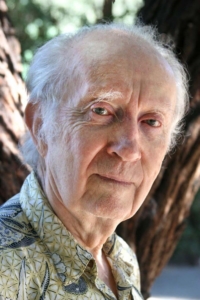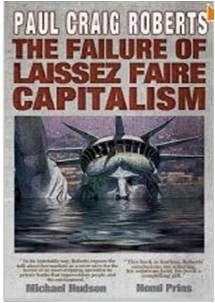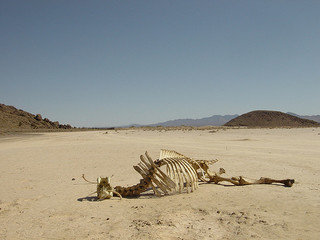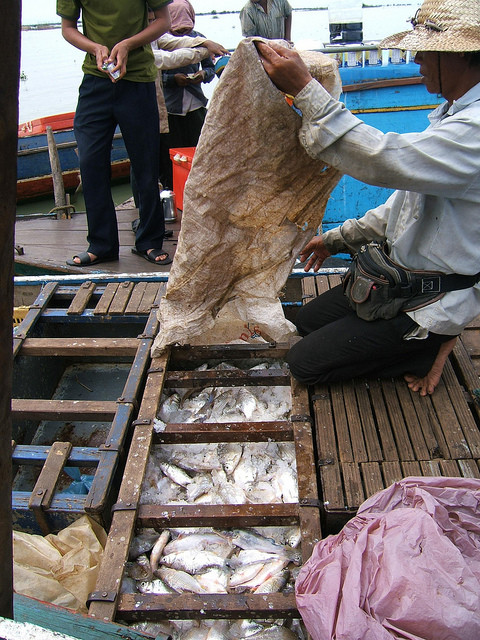Homo Economicus Versus Person-in-Community
by Herman Daly
The problem with Homo economicus (the abstract picture of a human being on which economic theory is based) is that it is an atomistic individual connected to other people and things only by external relations. John Cobb and I (For the Common Good) proposed instead the concept of “person-in-community,” whose very identity is constituted by internal relations to others in the community. I can only define myself by reference to these relations in the community. Who am I? I am the son of…, husband of…, father of…, friend of…, a citizen of…, member of…, etc. Shorn of all these relations, there is not much left of “me.” I am defined by these relations and therefore they are internal to my identity as a self-conscious, willing being, and not just external connections between some abstract, atomistic, independent “me” and other people, places, or things. Similarly, my relation to the environment is not just external (the economist’s term “externalities” notwithstanding). I am literally constituted by what I take in from the environment. My connection to air is not just external, it is an internal relation manifested in my lungs—I am an air-breather, just as I am the brother of…. This is an ontological statement about how the world is and how people are, not a wish about how they should be. The customary vision of Homo economicus is a wish about how people would have to be for neoclassical economics to work! Homo economicus is a misleading picture of people and consequently, neoclassical economics is a misleading theory, and policy based on it has been badly misled.

John Cobb and Daly in For the Common Good prose a “person-in-community” whose identity consists of internal relations to others, as opposed to someone consisting of external relations. (Image: CC0, Credit: Center for Process Studies).
The person-in-community understanding of who we are means that my welfare depends much more on the quality of all the relationships that define me than on my external relations to the commodities I buy or consume. If advertisers convince me that my relation to certain commodities really is internal to and constitutive of my identity—I am a Marlboro man or a Lexus owner—then so much the worse for me. The idea that the welfare of a community or commonwealth can even be approximated by summing up the annual consumption-based marginal utilities of atomistic individuals related only externally through an exchange nexus is quite absurd.
Community is far more than an aggregation of individuals. Communities have boundaries that are both inclusive and exclusive. The relationships by which we are defined as persons-in-community are those with people and places we know, with whom we share some common history, language, and laws. They do not include all possible relations with all people all over the globe, except in a very abstract and tenuous way. The world community should be viewed as a federation of national communities, a community of communities, not as an immediate community in which persons have direct membership. It sounds good to say that “I am a citizen of the globe,” but it is meaningless unless I am first defined by my more local relations in the community. The global community must be built up from below as the federated community of interdependent local and national communities. It cannot be some single, integrated, top-down, a-historical, abstract global club. Free trade, free capital mobility, and free migration do not create a global community. Globalization is just neoclassical atomistic individualism writ large. Such globalization destroys the local historical relations in a community by which persons produce for and take care of each other, and from which we might step-by-step federate into a global community of communities following the principle of “subsidiarity.” This is a rule that says problems should be dealt with at the most local community level capable of solving them. Climate change is irreducibly global, so let our fledgling institutions of world federation focus on that instead of trying to take over local markets for food, clothing, finance, etc. by globalization, resulting in unnecessary dependence on transnational corporations and loss of local autonomy. Even if loosening global integration results in fewer commodities, which is questionable, it will increase welfare by allowing us to improve the quality of relationships in a community that constitutes our very identity.
 Herman Daly is CASSE’s Chief Economist, Professor Emeritus (University of Maryland), and past World Bank senior economist.
Herman Daly is CASSE’s Chief Economist, Professor Emeritus (University of Maryland), and past World Bank senior economist.




I´m glad to see Mr. Daly returning to this fundamental concept. I was also glad to see that Elinor Ostrom, a member of the Intl Soc of Eco Econ, has done work very much supporting this crucial dimension of people in community.
http://www.eanth.org/